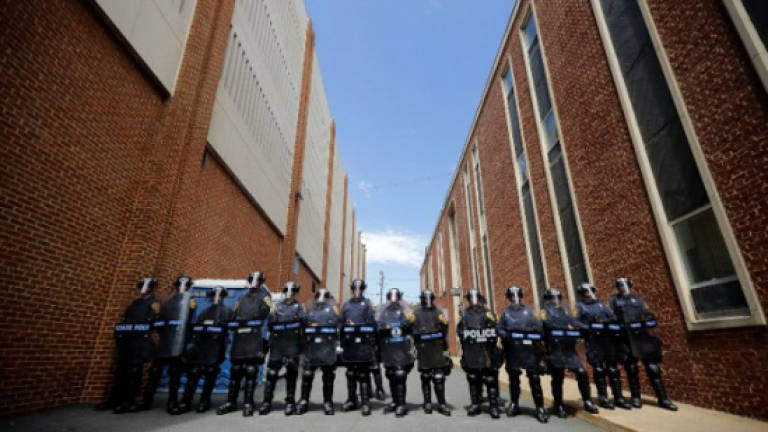Race drags Charlottesville into a fight it does not seek

CHARLOTTESVILLE, United States: A pretty university town imbued with American history, Charlottesville, Virginia has been thrust into the news by right-wing extremists whose views are deeply at odds with the city's sense of its own values.
This weekend was the second time this year that white supremacists occupied the normally peaceful streets of the city of 50,000. Dozens of Ku Klux Klan members had marched there on July 8.
But on Saturday their ranks had dramatically swollen, as hundreds of white nationalists – some of them armed, and some from out of state – arrived to take part in a rally that deteriorated into chaotic violence. One woman died and 19 people were injured after a car rammed a crowd amid clashes between demonstrators and counter-protesters.
Charlottesville owes its recent unhappy appearance in the headlines to the presence in one of its public parks of an imposing equestrian statue of General Robert E. Lee (1807-1870), the man who directed the Confederate troops of the pro-slavery states during the US Civil War.
When city officials voted in February to remove the monument – seen by many as glorifying the cause of slavery – they had little reason to suspect their community would become a national rallying point for radical, racist and anti-Semitic groups preaching white superiority.
'Not who we are'
The contrast could not be greater: On one side, militants in camouflage garb driving in from across America in pickup trucks flying the Confederate flag.
On the other: a town of elegant red-brick buildings with neatly manicured lawns, where 80% of voters supported Democratic presidential candidate Hillary Clinton and residents feel scant sympathy for the xenophobic and hate-filled slogans of the "visitors".
"We are very clear that that's not who we are," Kristin Szakos, a City Council member, told AFP in July. "We make resolutions expressing our welcome of immigrants, our dedication to racial equity and reconciliation".
With a Jewish mayor and a black police chief, Charlottesville seeks to reflect the open and welcoming sentiment symbolized by its most prestigious local institution, the University of Virginia, founded in 1819 by former president Thomas Jefferson.
The campus is regularly ranked among the 25 best in the country, and UNESCO has classified its architecture as a World Heritage Site.
Also on the UNESCO list is nearby Monticello, the superb estate of Jefferson, the third US president. A man of wide-ranging knowledge and a voracious reader, Jefferson himself drew up the plans for his hilltop home, which overlooks Charlottesville and the surrounding wine country.
To listen to the people of Charlottesville, the fight over Confederate monuments, angrily waged in several Southern cities, is clearly not one they would have picked.
During the nation's bloody Civil War, fighting never quite reached the town.
Locals wish the same could be said today. — AFP